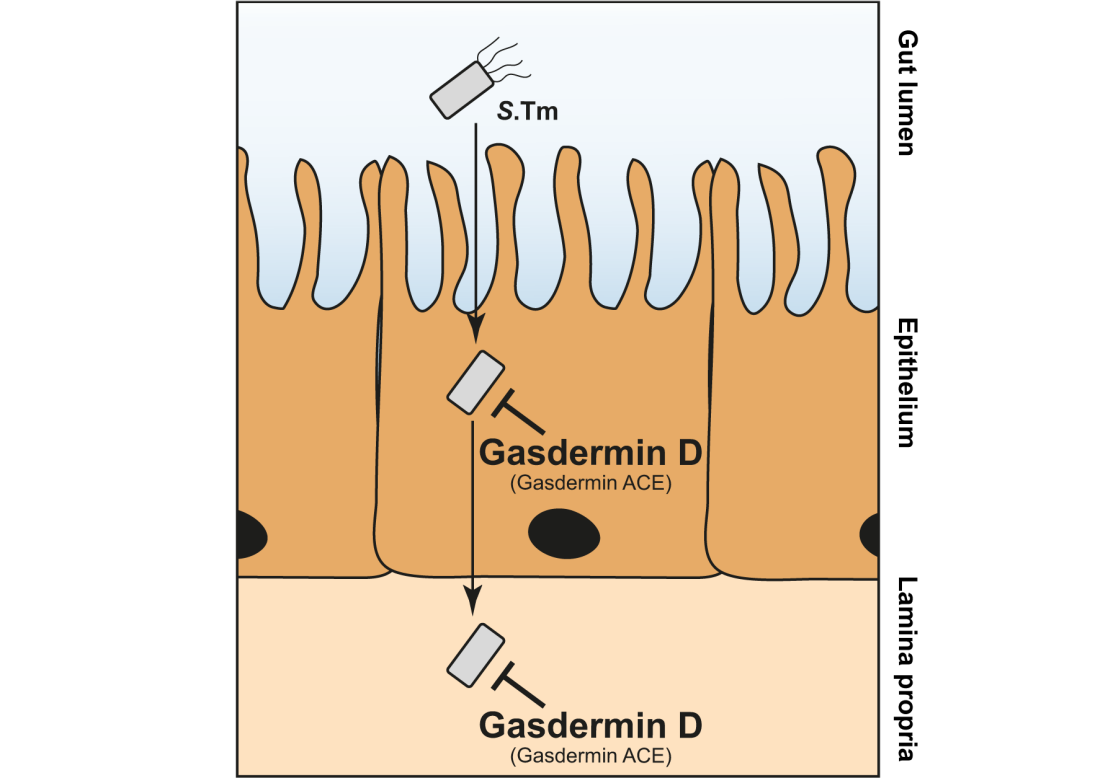New PNAS paper by the Hardt Lab
Gasdermin D is the only Gasdermin that provides protection against acute Salmonella gut infection in mice
Gasdermins (GSDMs) share a common functional domain structure and are best known for their capacity to form membrane pores. These pores are hallmarks of a specific form of cell death called pyroptosis and mediate the secretion of pro-inflammatory cytokines such as interleukin 1β (IL1β) and interleukin 18 (IL18). Thereby, Gasdermins have been implicated in various immune responses against cancer and infectious diseases such as acute Salmonella Typhimurium (S.Tm) gut infection. However, to date, we lack a comprehensive functional assessment of the different Gasdermins (GSDMA-E) during S.Tm infection in vivo.

Here, we used epithelium-specific ablation, bone marrow chimeras, and mouse lines lacking individual Gasdermins, combinations of Gasdermins or even all Gasdermins (GSDMA1-3C1-4DE) at once and performed littermate-controlled oral S.Tm infections in streptomycin-pretreated mice to investigate the impact of all murine Gasdermins. While GSDMA, C, and E appear dispensable, we show that GSDMD i) restricts S.Tm loads in the gut tissue and systemic organs, ii) controls gut inflammation kinetics, and iii) prevents epithelium disruption by 72 h of the infection. Full protection requires GSDMD expression by both bone-marrow-derived lamina propria cells and intestinal epithelial cells (IECs). In vivo experiments as well as 3D-, 2D-, and chimeric enteroid infections further show that infected IEC extrusion proceeds also without GSDMD, but that GSDMD controls the permeabilization and morphology of the extruding IECs, affects extrusion kinetics, and promotes overall mucosal barrier capacity. As such, this work identifies a unique multipronged role of GSDMD among the Gasdermins for mucosal tissue defense against a common enteric pathogen.